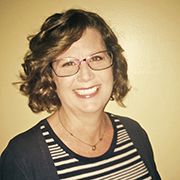
Christina Nigrelli, EdS
Christina Nigrelli, EdS, Senior Director of Programs, leads the ZERO TO THREE (ZTT) California Office including overseeing California Office staff and programming, and ensures coordination and alignment of ZTT national programming with ZTT’s work in California. Christina has worked in the early care and education field for more than 30 years beginning her career as an infant and toddler provider in an Irvine, California NAEYC Accredited program. She has extensive experience in local and statewide workforce development including teaching higher education in Early Childhood and Child Development and Family Studies. Christina developed ZERO TO THREE’s Competencies for Prenatal to Five Professionals, coordinates ZTT’s Parent Engagement efforts, and the Think Babies Advocacy efforts. Christina is a member of the Board of Directors for Young Horizons Child Development Program in Long Beach, serves on the Steering Committee of the California Campaign to Counter Childhood Adversity and represents ZERO TO THREE on a number of Statewide policy working groups including the Interagency Coordinating Council on Early Intervention (ICC) and the California Early Childhood Educators Professional Learning Committee.
Prior to joining ZTT in 2012, she was a professor at Saddleback College teaching courses such as Early Childhood Development, Principles and Practices in Early Care and Education, Infant and Toddler Development, Learning and Curriculum, Administration and Supervision and Early Childhood Curriculum, to prepare students to work with young children and their families in early learning programs at all levels, including administration. As a lecturer at California State University, Long Beach, Christina taught Child Growth and Development, Family and Personal Development, Prenatal Development and Infancy, Language Development, Family Stress and Coping for the Professional Educator, Guidance for Young Children, The Preschool Child, Practicum, and Early Childhood Curriculum for students aiming to work with children and/or families in a variety of work roles. She co-authored several Seamless Education Awards funded by the Boeing Corporation designed to support child development students’ academic achievements in Math and English and increase matriculation and graduation. She received an Assessment Grant for the development of Project LEAD incorporating a portfolio project into lower division child development courses to better track and monitor student success rates within the child development program. As the Infant and Toddler Program Coordinator of the California State University Long Beach Child and Family Center, Christina supervised staff and student interns; and she was also an Assistant Professor in the Child and Adolescent Development Department of Long Beach City College where she taught courses in early care and education including parent education classes. Christina has an MA in Early Childhood Education and BA in Child Development and Family Studies from California State University, Long Beach; and an EdS in Early Childhood Education from Walden University.
Forum Presentation
Continuous Quality Improvement
Professional development serves as a vital mechanism to ensure that program staff have the knowledge and skills needed to effectively support the children and families with whom they work. At the same time, professional development has come under increasing scrutiny. Program leaders as well as funders want to know whether it leads to substantive changes in practice and/or client-level outcomes. This session will share an evaluation framework and Continuous Quality Improvement (CQI) strategies used to evaluate and refine a professional development/training designed to identify the common barriers to cross-sector work, such as restrictions on cross-agency information sharing, building trust among cross-sector providers, and capacity to do warm-hand-offs, and engage in shared learning around strategies to address those barriers. The example will demonstrate how combining data from different sources can inform the ongoing design of professional learning.
